Global Down Syndrome Foundation Celebrates The Tripling Of The Down Syndrome Research Budget At The National Institutes Of Health
May 31st, 2019 by Global Down Syndrome Foundation
Sen. Roy Blunt, Rep.Cheri Bustos, and Global Ambassador CC Mullen honored at the AcceptAbility Gala in D.C. with a special performance by Multi-Platinum pop artist Andy Grammer
Press Contacts:
Rejena Carmichael | rcarmichael@globaldownsyndrome.org | C: (240) 603-5494
Anca Call | acall@globaldownsyndrome.org | C: (720) 320-3832
May 29, Denver, CO – It was standing-room-only at the sold-out annual AcceptAbility Gala, benefitting the Global Down Syndrome Foundation (Global) at the Hilton Washington DC National Mall last week. The evening highlighted the National Institutes of Health (NIH) reversing a twenty-year trend and tripling the research budget benefitting people with Down syndrome. The event raised nearly $350,000 for life-saving and life-changing medical care and research.
“We were thrilled when the director of the NIH, Dr. Francis Collins, recently presented an estimate of nearly $80 million for Down syndrome research in FY2019 to the Senate Labor Health and Human Services, Education and Related Agencies Sub-Appropriations Committee,” said Michelle Sie Whitten, Global Down Syndrome Foundation President and CEO. “Dr. Collins is one of our many heroes at the NIH who believes in our science and that the 400,000 American citizens who happen to have Down syndrome are equal under our laws and deserving of so much better. But we still have a long way to go to rebuild the pipeline of Down syndrome research and achieve parity.”
The gala honored Global Ambassador CC Mullen, and recognized Senator Roy Blunt (R-MO) and Representative Cheri Bustos (D-IL) with Global’s Quincy Jones Exceptional Advocacy Award (Q-Award).
Three previous Q-Award winners helped ring in the evening. Congresswoman Cathy McMorris Rodgers (R-WA) provided moving, opening remarks with her 12-year old son who happens to have Down syndrome, Global Ambassador Cole Rodgers, by her side. Congressman Tom Cole (R-OK) and Congresswoman Rosa DeLauro (D-CT) introduced the 2019 honorees, underscoring the great contributions that Sen. Blunt and Rep. Bustos have made to the Down syndrome community and all those who are differently-abled.
Global Ambassador CC Mullen is currently battling leukemia and was unable to attend. CC was represented by her parents, Ed and Erin Mullen. Erin’s speech received two standing ovations. “I am a mom of a child who is ten times more likely to get childhood leukemia, among many other diseases and health challenges. This is just one reason why medical research for individuals with Down syndrome is important,” Erin shared. “To work with Global, our congressional champions, and self-advocates on the first-ever Congressional hearing on Down syndrome research was one of the best experiences of our lives. I got to hold CC in my lap, witness a standing ovation for Frank Stephen’s testimony, and later see the results be the first significant increase in Down syndrome research funding in nearly 20 years. My experience with Michelle and the Global team makes me believe without a doubt that things can change and that we can all make a difference.”
Rep. McMorris Rodgers agreed, “Michelle and I have been on this journey for 12 years now for Cole, Sophia, and millions of people with Down syndrome. Research about Down syndrome has so much to offer not just those with Down syndrome, but the world. Global and Dr. Espinosa at the Crnic Institute are making sure that everyone understands that we can help cure Alzheimer’s, cancer and so many life-threatening diseases if we invest properly in Down syndrome research.”
Reps. DeLauro and Cole emphasized the successful, bi-partisan effort around Down syndrome research and medical care. Global’s Q Awardees Blunt and Bustos provided an insight into the greater framework within which people with Down syndrome can succeed.
“Global and the Crnic Institute, the Mullen family and all those with Down syndrome, everyone in this room tonight, is taking on a worthy cause and battling for what is right. This battle is truly bipartisan. And only by working together can we make sure that every person with Down syndrome has the resources they need to live a happy, productive, and dignified life. That’s our goal,” said Rep. DeLauro.
“Every American has a special and unique role to play in our communities, and those who face challenges deserve an extra dose of support from their communities. Republican or Democrat, this is something we can all agree on,” said Rep. Cole. “During this year’s AcceptAbility Gala, I am proud that my colleagues Senator Roy Blunt and Congresswoman Cheri Bustos were honored for their advocacy on behalf of those Americans in the Down syndrome community. Certainly, this is bipartisan work we can all be proud of.”
“It was a tremendous honor to be a part of this year’s AcceptAbility Gala. In the subcommittee I chair, we have worked together in a bipartisan, bicameral way to boost federal funding for medical research by $9 billion over the past four years,” said Senator Blunt. “I appreciate all that the Global Down Syndrome Foundation does to bring together families, advocates and supporters who are working hard to make sure Down syndrome remains a research priority. An event like this doesn’t just bring awareness, it inspires all of us to make sure differently-abled people are recognized for their achievements and given the opportunity to continue accomplishing great things in their lives.”
“I know a young girl with Down syndrome who was diagnosed with Lyme disease. Clinicians were at a loss as to how to treat her and Dr. Espinosa jumped in to help,” said Rep. Bustos. “We obviously need to understand more about what appropriate care is for people with Down syndrome. We also need to keep pushing important financials vehicles such as the ABLE act. There is so much more we can and should be doing for people with Down syndrome.”
The AcceptAbility Gala was capped off with an inspirational set by The Ransom Notes musical trio from Nashville, and an intimate and heart-felt performance by multi- platinum pop artist, Andy Grammer. The award-winning musician related to the cause immediately and even helped organize two unified dance troupes, RhythmXpress and Devenio, to choreograph dances to his first two certified Gold songs – Good to be Alive and Keep Your Head Up.
Grammer was truly touched by the event, “There are a lot of emotions around this topic, but the real work is getting to DC and getting into the true mechanics of how to create real change. And the Global Down Syndrome foundation is creating real change.”
Chief White House correspondent at Fox News, John Roberts was the gala’s emcee. Honorary Committee members included Representatives Eleanor Holmes Norton (D-DC), Pete Stauber (R-MN), Cathy McMorris Rodgers (R-WA), Michael Bennet (D-CO), Cory Gardner (R-CO), Elizabeth Warren (D-MA), Tom Cole (R-OK), Diana DeGette (D-CO), Rosa DeLauro (D-CT), Barbara Lee (D-CA), and Senators Steve Daines (R- MT) and Roy Blunt (R-MO). Key sponsors include Kroger, American Express, JMA Solutions, MasterCard, PhRMA, US Travel Association, Visa, Wells Fargo, and the Mullen Family.
To learn more about Global’s AcceptAbility Gala and the Quincy Jones Exceptional Advocacy Award, visit: https://www.globaldownsyndrome.org/acceptability-gala/
About Global Down Syndrome Foundation
Established in 2009, Global Down Syndrome Foundation (Global) is a non-profit 501(c)(3) dedicated to significantly improving the lives of people with Down syndrome through research, medical care, education and advocacy. Global is part of a network of affiliates who work together to deliver on our mission, supporting hundreds of scientists and medical care professionals. Our affiliates include the Sie Center for Down Syndrome, the Crnic Institute for Down Syndrome, Rocky Mountain Alzheimer’s Disease Center and a new pilot Adult Clinic. For more information, visit globaldownsyndrome.org and follow us on social media (Facebook, Twitter @GDSFoundation, Instagram @globaldownsyndrome).
Global President & CEO Michelle Sie Whitten Receives CU Regents Distinguished Service Award
May 29th, 2019 by Global Down Syndrome Foundation
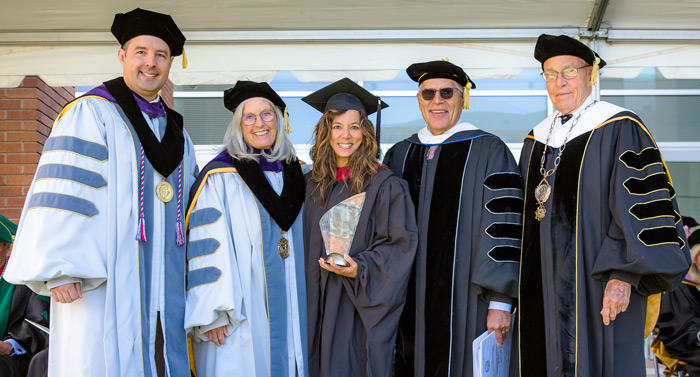
Left to Right: Michael A. Clemens (President, CU Anschutz Student Senate); Linda Shoemaker (CU Regent, District 2 – Boulder); Michelle Sie Whitten (President & CEO of Global Down Syndrome Foundation); Donald M. Elliman, Jr. (Chancellor, University of Colorado Anschutz Medical Campus); Bruce D. Benson (President of the University of Colorado)
Global President & CEO, Michelle Sie Whitten, was honored to accept the CU Regents Distinguished Service Award at the University of Colorado Anschutz Medical Campus Spring Commencement. Linda Shoemaker presented her award, stating that “Whitten’s tireless pursuit of excellence in care, research, and advocacy has yielded better lives for all, and her commitment to the University of Colorado is today honored by the CU Board of Regents and the CU community with the Distinguished Service Award.”
GLOBAL DOWN SYNDROME FOUNDATION ACCEPTABILITY GALA
May 24th, 2019 by Global Down Syndrome Foundation
Hit singer Andy Grammer says ‘unity’ more important than any political party
May 24th, 2019 by Global Down Syndrome Foundation
What Families Should Know About Moyamoya Disease
May 23rd, 2019 by Global Down Syndrome Foundation
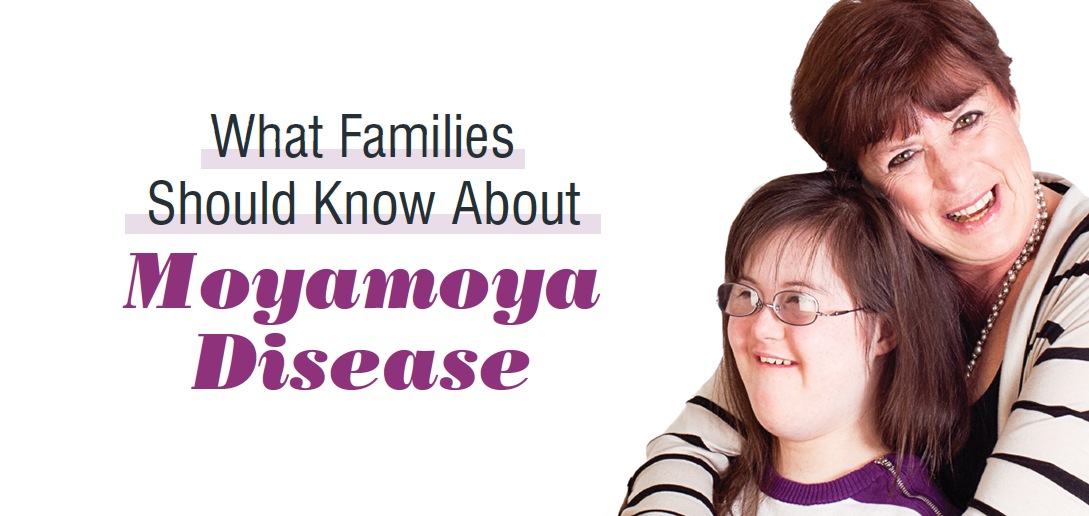
Maria Dellapina and her daughter, Erin Farragher
From Down Syndrome WorldTM Issue 1 2019
This rare disease is significantly more common in children with Down syndrome. Understanding symptoms and early detection could save a life.
“WHAT IS MOYAMOYA DISEASE?” many readers may be asking themselves. It is a rare blood vessel disease caused by blocked arteries in the brain. The name “moyamoya” is derived from a Japanese term meaning “puff of smoke,” because the tangle of vessels often resembles a small puff of smoke. Occurring in approximately 1 out of every 100,000 people, moyamoya disease can be fatal if left undiagnosed and untreated. It is estimated that people with Down syndrome are 26 times more likely to develop the disease, compared with the typical population. It is important for parents of children with Down syndrome to know the warning signs and next steps if their child is diagnosed.
A MOTHER’S STORY
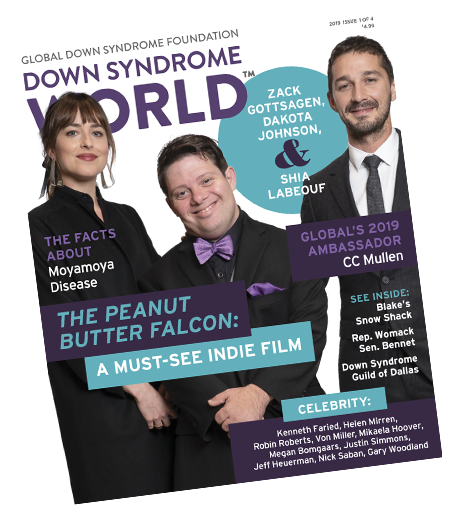 This article was published in the award-winning Down Syndrome World™ magazine. Become a member to read all the articles and get future issues delivered to your door!
This article was published in the award-winning Down Syndrome World™ magazine. Become a member to read all the articles and get future issues delivered to your door! Maria Dellapina, from Burton, Ohio, is the founder of the award-winning adaptive eyewear company, Specs4Us. Her daughter, Erin Farragher, happens to have Down syndrome. When Erin was 16 years old, she began experiencing unusual symptoms of shaking , fainting, and muscle aches.
“Erin called out to me, I turned around, and she was shaking all over and fell to the ground,” recalls Dellapina. Initially, Dellapina thought her daughter had experienced a mini-stroke, but Erin bounced back quickly.
However, Erin’s symptoms continued to occur — more headaches, more muscle aches, and poor balance. In Dellapina’s search for answers, she received an email from a parent, who, based on his experience with his daughter, advised Dellapina to look into moyamoya disease, a term with which she was unfamiliar.
Growing increasingly concerned with Erin’s “off” behavior over the next few days, Dellapina decided to take Erin to the emergency department at a local hospital.
“When I pulled into the parking lot, Erin star ted throwing up,” Dellapina recalls. “The physicians thought Erin had the flu. They even laughed when I mentioned moyamoya.”
Not convinced, Dellapina took Erin to another hospital in Cleveland. A CT scan revealed Erin had suffered from a stroke. In fact, it was just one of several strokes and transient ischemic attacks (TIAs), also called “mini-strokes,” that Erin had apparently experienced throughout her young life. Later, at Cleveland Clinic, an MRI and angiogram led physicians to diagnose Erin with moyamoya disease.
LEARNING ABOUT MOYAMOYA
Anytime families receive an unexpected diagnosis, it can be very overwhelming and scary. Knowing the facts and what to expect can help ease some of that fear. Moyamoya disease occurs when the internal carotid arteries at the front of the neck that supply the brain with oxygenated blood gradually narrow, says Raphael Sacho, M.D., F.R.C.S., Assistant Professor of Neurosurgery at the Medical College of Wisconsin. As those vessels narrow, the two vertebral arteries at the back of the neck compensate by developing small blood vessels called collaterals. This causes a tangling of blood vessels in the brain, restricting blood flow.
“Collaterals take over the function of the internal carotid arteries over time,” Dr. Sacho explains. “That, in itself, can cause problems because the collaterals can be small, thin, and not used to taking so much blood. They can burst and cause bleeding.”
As a result, many people with moyamoya disease experience strokes, just as Erin did. All types of strokes share symptoms such as headaches, seizures, visual disturbances, one-sided weakness, slurred speech, involuntary movements, and cognitive impairment. Some common strokes that occur with people who have moyamoya disease are TIAs, ischemic strokes, and hemorrhagic strokes. TIAs occur when blood flow to the brain is interrupted briefly but then resumes, which is why they are often called “mini-strokes.” Ischemic strokes occur as a result of a blood clot completely blocking an artery that supplies the brain with blood. Hemorrhagic strokes — major brain bleeds — may occur if blood vessels or collaterals burst.
The reason people with or without Down syndrome develop moyamoya disease is unclear.
It’s thought that genetics may play a role, as several mutations to the gene RNF213 are associated with moyamoya disease. Infection or inflammation may also be involved in its development, according to the National Institutes of Health (NIH).
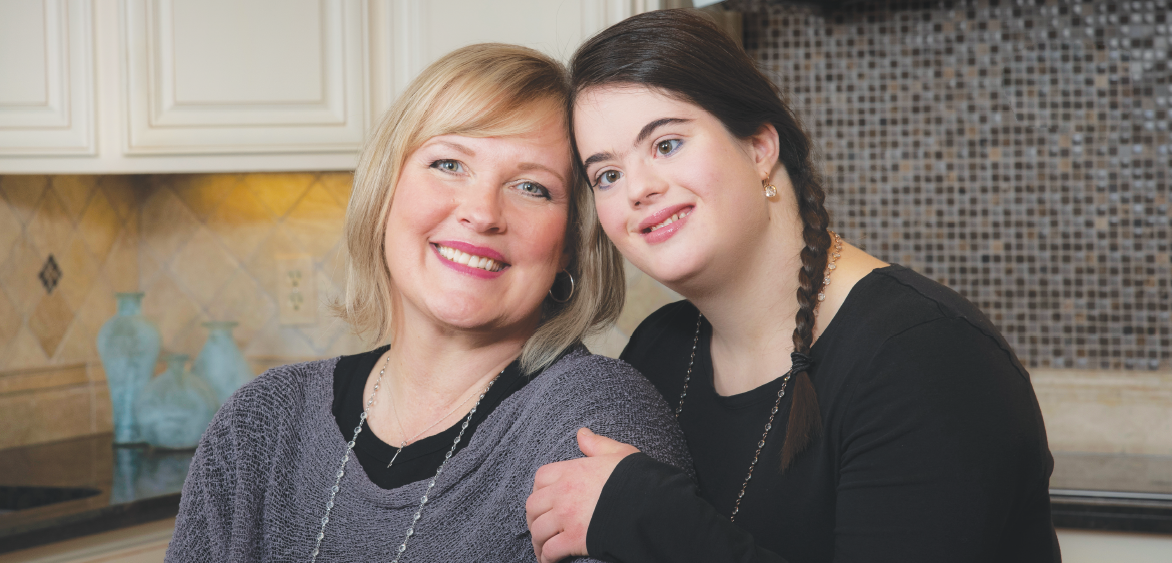
Mary Beth Freckmann and her daughter, Madie Ehlers
PREVALENCE AND THE IMPORTANCE OF EARLY DETECTION
“In the United States, it was thought moyamoya disease occurred in 0.1 per 100,000 people,” says Gary Steinberg, M.D., Ph.D., Chair of Neurosurgery, Director of the Stanford Moyamoya Center, and Founder and Co-Director of the Stanford Stroke Center. “More recent studies have shown the incidence may be 0.5 or closer to 1 per 100,000 because it’s been under-recognized in the U.S.”
While the disease is rare in the general population, people with Down syndrome are 26 times more likely to develop the disease than typical people, according to Dr. Sacho. The reasons for that discrepancy are also unclear, though signs seem to point to genetics. He adds that, in Down syndrome, there’s something about the triplication of chromosome 21 (the defining characteristic of Down syndrome) that predisposes this population to moyamoya disease.
The disease can be more difficult to detect in children with Down syndrome than typical children, which may explain why, on average, children with Down syndrome are diagnosed with moyamoya disease nearly two years later than typical children. According to a 2015 study by researchers at Boston Children’s Hospital, children with Down syndrome are usually diagnosed at age 8.4 versus 6.5 for typical children.
A delayed diagnosis can allow moyamoya disease to progress to a more advanced stage.
Dellapina believes an early diagnosis likely would have made a significant difference for her daughter, who, she now believes, showed signs of TIAs as early as age 11. In 2016, Erin underwent pial synangiosis surgery — the typical treatment for moyamoya disease. The procedure involves surgeons creating new blood vessels to supply the brain. It’s believed these new blood vessels can do the job better and have a lower risk of bursting than the collaterals. Once the new vessels are functional, patients both with and without Down syndrome enjoy a normal life expectancy, Dr. Steinberg says.
“That is why it’s so important to diagnose and treat promptly,” he says.
Unfortunately, strokes and TIAs had already significantly damaged Erin’s brain by the time she had surgery, which did not succeed in ending the strokes and seizures. Now 19, she receives hospice care while Dellapina focuses on giving her the best quality of life possible.
For 25-year-old Madie Ehlers of Wisconsin, treatment has, so far, been successful. Born with Down syndrome, she was diagnosed with moyamoya disease in late 2013 at age 20. Like Erin, Madie experienced fleeting stroke-like symptoms and was initially misdiagnosed. She has had three surgeries since spring 2014 — two on the left side of her brain and one on the right, and her symptoms have disappeared.
Today, Madie is back to being active in her community. She is training to become a certified Zumba instructor and plans to marry her boyfriend next year.
“Madie hasn’t had any symptoms since two weeks after her most recent surgery in October 2018,” says Madie’s mother, Mary Beth Freckmann. “Dr. Sacho [who performed the surgery] really believes this will give her a very long life.”
Like this article? Join Global Down Syndrome Foundation’s Membership program today to receive 4 issues of the quarterly award-winning publication, plus access to 4 seasonal educational Webinar Series, and eligibility to apply for Global’s Employment and Educational Grants.
Register today at downsyndromeworld.org!
Global Down Syndrome Foundation Honors Congressional Champions Senator Roy Blunt, Congresswoman Cheri Bustos, and Ambassador CC Mullen
May 21st, 2019 by Global Down Syndrome Foundation
Global Down Syndrome Foundation Honors Congressional Champions Senator Roy Blunt, Congresswoman Cheri Bustos, and Ambassador CC Mullen
May 21st, 2019 by Global Down Syndrome Foundation
Maryland Dance Group for Youth With Down Syndrome to Perform With Andy Grammer
May 21st, 2019 by Global Down Syndrome Foundation
Supermodel Citizen Beverly Johnson’s star never ceases to shine in Rancho Mirage.
May 20th, 2019 by Global Down Syndrome Foundation
2019 Trisomy 21 Research Society Conference in Barcelona, Spain
May 19th, 2019 by Global Down Syndrome Foundation
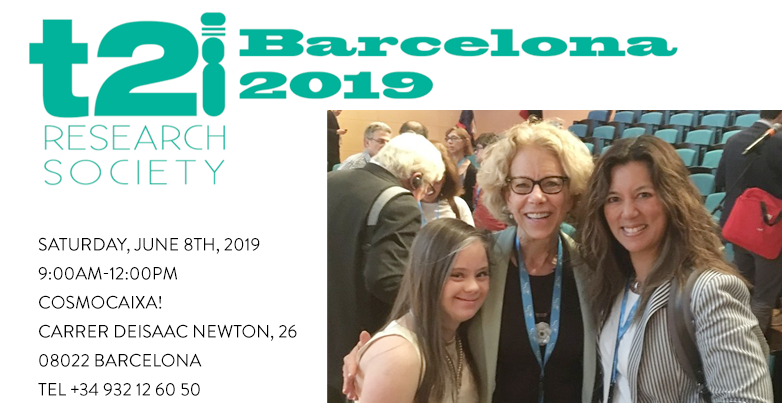
(L-R) Megan Bomgaars, Dr. Diana Bianchi, Michelle Sie Whitten
PROGRAM FOR FAMILIES: ADVOCACY, AWARENESS, & FUNDRAISING
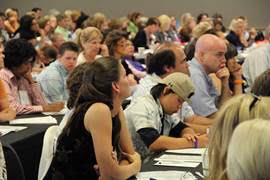 |
Through a series of short presentations and Q&A, this session will address important issues for self-advocates, family members, and Down syndrome organizations regarding three areas that are intricately related – advocacy, awareness & fundraising for Down syndrome research. This year Global will be hosting a full morning program featuring 5 expert speakers (including Megan Bomgaars from the Emmy Award-winning series Born This Way), and cover the following topics: The Importance of Down syndrome Research & How Down Syndrome Organizations and Families Can Advocate for Government Funding, Self-Advocates with Down Syndrome Make it Happen!, Scientists with Family Members with Down Syndrome – Things to Consider Before Participating in Research and Engaging the Press, Self-Advocates & Celebrities to Raise Awareness & Funds. |
Speakers & Presentations |
|
|
|
|
|
|
|
|
|
T21 Research Society Founding Members:



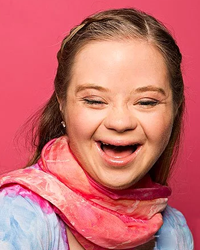
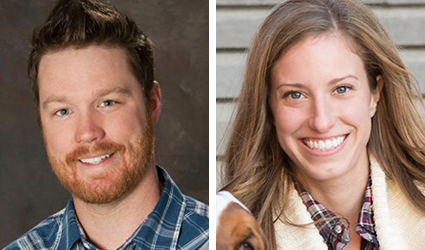 Keith Smith
Keith Smith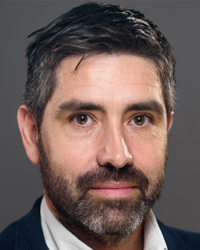 Manuel Velázquez
Manuel Velázquez  Experience our inspirational and groundbreaking videos and photos. Our children and self-advocates are beautiful AND brilliant!
Experience our inspirational and groundbreaking videos and photos. Our children and self-advocates are beautiful AND brilliant! Make sure your local Representatives are on the Congressional Down Syndrome Task Force.
Make sure your local Representatives are on the Congressional Down Syndrome Task Force.